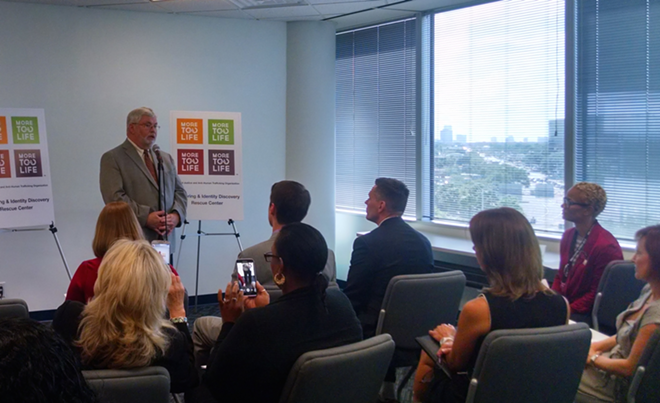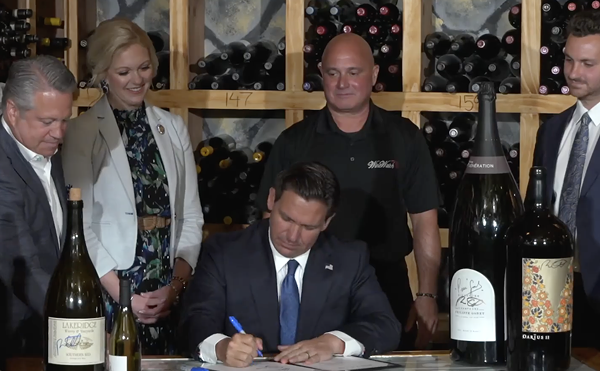
Tougher penalties for scumbags who deal in human trafficking, and efforts to spread awareness that it's still a problem, could be on Florida's books within weeks, assuming Governor Rick Scott agrees with lawmakers, who overwhelmingly support the policies.
A collection of nonprofits heralded the passage of the bills Thursday, thanked their sponsors and called on Scott to sign the bills once they reach his desk.
“This is important for the state of Florida. Florida is a beautiful state,” said Brook Bello, founder of the anti-human trafficking nonprofit More Too Life. “But it's also a destination for would-be predators and violators of all forms of human trafficking.”
Human trafficking, defined as the buying and selling of people and/or holding them against their will and forcing them to perform labor or be exploited sexually, shouldn't be political a issue, obviously, and that's why lawmakers say the new laws won't have a problem passing.
“I certainly expect that the governor will sign it,” said State Senator Jack Latvala (R-Clearwater), one of the bill's Senate sponsors. “It passed, unanimously, I think, in both houses. Usually that's a good sign that a bill's going to go all the way through.”
The bills do two things: one creates harsher penalties for those convicted of engaging in human trafficking, especially those that are repeat offenders. The other requires locales victims are likely to pass through — emergency rooms, truck stops, transportation hubs — to have signage featuring information useful to those who think they or someone they know might be a victim of human trafficking.
While Scott is typically not a fan of bills that burden businesses in any way, Latvala said the legislature made the bill innocuous in terms of its impact on businesses.
"We were able to work it out where even those folks that don't like overregulation of businesses were able to arrive at approval of this bill,” he said.
Bello said going after those who are doing the forcing — not the ones being forced — is the most effective way to fight the practice.
“This is a powerful tool," she said. “Ending demand is the most important part of this. We always say at More Too Life, men are unfortunately the biggest problem to sexual exploitation. But they will be the biggest part of the solution.”
For State Rep. Ross Spano (R-Sarasota), one of the bill's House sponsors, efforts to fight human trafficking comes from the thought that everyone, even his four children, is vulnerable to being taken against their will and forced into servitude, and “deserve[s] to have us fight just like they're our family.”
“There's kind of an indignation and an anger I feel inside when I think of someone that's being abused and being held and coerced and forced to do something so reprehensible," he said. "Awful, awful, awful."
It's unclear when the governor would sign it, said Matthew Yost, an aide of Spano; but he would have two weeks to do so once lawmakers officially send it to his desk. Yost said the governor typically reads every bill thoroughly before signing, so getting his signature could take a little time.















